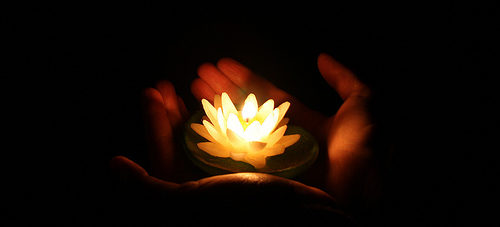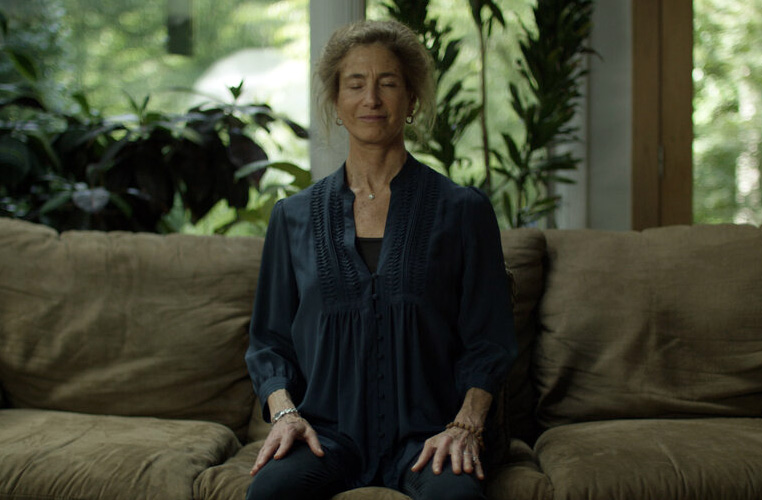My friend Richie and I met when we were juniors in college. A shy, thoughtful African American man, he was known for carrying his camera everywhere, listening as others poured out their stories to him, and running through the snow wearing gym shorts. We’d lost touch after graduation, yet nearly fifteen years later, he called and asked to consult with me on an upcoming visit to Washington, D.C.
Now a photojournalist living in New York, Richie had recently married Carly, a Caucasian woman he’d met at a meditation class, and he wanted to talk with me about her family. “I knew what I was getting into … country club, conservative, the whole nine yards … but I had no idea it would be this hard.”
“From the start,” he told me when we met, “Sharon [his mother-in-law] was dead set against me and Carly getting together.” While Carly’s father seemed willing to support his daughter’s choice, her mother had fought the marriage vehemently. “She warned Carly that we were too different, that we’d end up divorced and miserable. Well,” he said grimly, “we love each other deeply, but she’s succeeding in making us miserable.”
On their third and most recent visit, Sharon had refused to attend a community theater production with them. She later told Carly she couldn’t bear to encounter her friends from the club: “As soon as I’d turn my back, they’d start gossiping about you and Richie.” At dinner Sharon ignored Richie’s compliments about the salmon, and gave vague, noncommittal responses to his questions about a recent trip to Italy. When Carly confronted her mother privately upstairs, Sharon acknowledged her behavior. “I admit it, I’m being awful. But I can’t help it, Carly. He’s a good person, an intelligent person, but you’re making a terrible mistake.”
Carly wanted to stop visiting—they could just skip Thanksgiving and Christmas, she said—but Richie insisted on hanging in there. “It’s not that I’m trying to martyr myself,” he told me. “Sharon’s a racist, self-centered asshole, and it might do her some good if Carly refused to go home. I’d be gratified. I’m way pissed. But something in me feels like she’s reachable.”
As part of his meditation practice, Richie had recently taken “bodhisattva vows” with his teacher. These express a basic commitment to let whatever arises in our life awaken compassion, and to dedicate ourselves to actively bringing this compassion to all beings. For Richie, these vows had a very specific meaning. “I don’t want to give up on anyone, give up on who they can be,” he told me. But Richie knew that before he could approach Sharon, he needed to connect with his own anger, and what was behind it.
“That’s what I wanted us to focus on, Tara,” he said. “I wouldn’t be so pissed if I didn’t feel insecure. It’s that basic issue of being worthy—she’s telling me I’m not worthy enough for her daughter.”
“Is that feeling familiar?” I asked.
“Oh yeah. This has been the kind of thing I’ve told myself ever since my dad left. Back then it was that I’m not enough to make my mom happy.” He sat quietly for a few moments then went on. “I thought I was supposed to fill his shoes and I couldn’t. She was always depressed, always anxious.”
Richie sat back in the chair, deflated. “It’s always this same feeling that I’m the kid who can’t make the grade, who doesn’t deserve good things. And it didn’t help going to that vanilla college of ours …” he flashed me a smile, “or working in a white profession. I know this unworthiness thing’s in the culture, Tara … but that kid still feels like he’s young, and just not cutting it.”
“As you pay attention, can you sense what that kid who feels unworthy most wants from you?”
He was quiet, then nodded. “He just wants me to see him, to notice him and to be kind.”
“What happens if you offer your kindness inward?” I asked. For a few minutes Richie sat silently, then said: “I guess this part of me needs some reassurance, some care. Just now I felt like I was looking through a camera at this kid who was failing at an impossible task. There’s no way he could make things okay for his mother.”
We talked about their upcoming Thanksgiving visit, and how Sharon might activate his insecurities. Richie came up with a plan: “I’m bringing my camera. I’ll keep my eye on the kid inside, and on Sharon, both of us with kindness.”
I heard from Richie again right after Thanksgiving weekend. Sharon had treated him with polite formality—everyone else was family, he was a guest. “But I kept imagining I was looking at her through a camera viewfinder,” he told me, “and I saw she was in pain. Behind that coldness was a scared, tight heart.” He had a freeing realization: “It isn’t really me she’s afraid of. It’s of Carly being unhappy.”
A day or so later he e-mailed me two standout photos, both of Sharon. Carly’s sister had just had a baby, and he’d caught Sharon cradling her new granddaughter, looking down adoringly at the infant. The other was of a playful moment when her husband had pulled her down to sit with him and she’d toppled over on him. Richie took the shot just as they were looking at each other and laughing.
Then came Christmas. Early on Christmas Eve, Carly’s dad (playing Santa) placed two boxes in front of Richie. Sharon had ordered some socks for him online (too large) and had wrapped a box of chocolates (he rarely ate sugar). Sometime later, Sharon opened her gift from Richie. She found the two photos he’d taken weeks earlier, simply and elegantly framed. Sharon started trembling, then sobbing. Her husband and Carly came over to see what was wrong. There were the pictures of Sharon with her granddaughter and her husband, looking radiant, loving, and happy. And here she was weeping. When she calmed down, she still couldn’t speak and she waved everyone on to continue the gift giving.
Richie had truly “seen” Sharon—her vulnerability and spirit, and he’d expressed his care by mirroring her goodness. It took another year and a half for her to tell him what those gifts had meant to her, and to apologize. But because he hadn’t given up on her, a thaw had begun. She too was able to see more truly, and come home to her heart. The following evening Carly’s sister asked Richie for a lesson in swing dancing, and he showed her some steps to the jazz music on his iPod. She caught on quickly, and the others applauded as she and Richie spun happily around the living room. Carly glanced over at her mom, who was standing behind the others in the doorway. She was watching with a slight smile, her eyes wet with tears.
Adapted from True Refuge (Jan. 2013)



